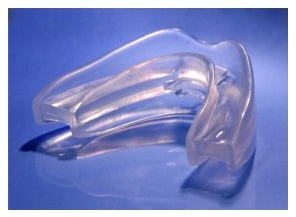Why do we snore?
Sometimes when we sleep, the muscles which hold the airway open relax and partially collapse, slightly obstructing the flow of air. Air passing through the partially collapsed airway can cause a vibrating sound known as snoring. In serious cases, the airway can be closed completely, resulting in sleep apnoea.
Who suffers from snoring?
Approximately 44% of men and 28% of women between the ages of 30-60 suffer from habitual snoring*. It has also been shown that people with excess body weight, a long, soft palate, an enlarged uvula and large tonsils may be more prone to snoring than other
How serious is snoring?
Snoring alone is not necessarily detrimental to your health. It may however, be the sign of a more serious condition known as Obstructive Sleep Apnoea (OSA). While not everyone who snores suffers from sleep apnoea, SomnoMed suggests that if you have been heard to gasp for breath or have sudden spells of drowsiness during the day, then you should obtain a referral to a qualified specialist.
How can we help?
Dentistry can manage snoring and sleep apnea. Together with your GP and sleep physician, we can make an appliance to hold your jaw forward, preventing it from collapsing whilst you are asleep. This can be used in conjunction with medical CPAP machines. To make the appliance, or plate, your dentist will take records of your teeth and have the laboratory custom-make plates to fit your mouth. These plates will be inserted at the following visit and treatment can be claimed through Medicare.


